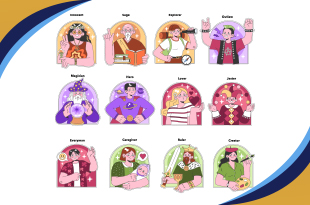What is Psychosis?
It is basically a break from reality as a person’s thoughts and perceptions are essentially disrupted through symptoms like delusions and hallucinations.
Symptoms of Psychosis
These can be grouped into confusion, delusions, hallucinations, and unpredictable feelings, and behavior.
Causes of Psychosis
It is known to be caused by illnesses or conditions such as schizophrenia, bipolar disorder, or depression
Phases of Psychosis
These are divided into Early, Acute and Recovery
Stages of Psychosis
Early, Acute (overwhelm), Vulnerable, Living with Psychosis and Recovery are all stages of psychosis.
For a long time, psychosis has been a grave problem for many people, keeping in mind the different mental conditions it is a symptom of. Treatment is necessary and adjusting is also important. That means you need to properly understand it first, especially the stages of psychosis. Let’s start:
Let’s Define Psychosis First
Psychosis is a mental condition that is characterized by symptoms such as delusions and hallucinations. It is basically a break from reality as a person’s thoughts and perceptions are essentially disrupted. Three out of ten people from the younger generation are bound to suffer from psychosis due to it being present as a symptom of different mental conditions, for example, schizophrenia. While predominant in young adults especially when it is at the early stage of psychosis it can happen to anyone. It is a consequential medication condition, especially when you are climbing to one of the higher stages of psychosis.
Symptoms of Psychosis
To understand the different stages of psychosis, you also need to know about the symptoms of psychosis as these can help you with different phases or stages of psychosis. These symptoms typically involve sudden changes in critical thinking, behavior, and mood. But almost all of these can be grouped into five categories.
- Confusion: The affected individual might not know what they are actually talking about. They will also have difficulty focusing on a task at hand, keeping up with a conversation, or generally having forgetfulness.
- Delusions: Also called false beliefs, these are a big part of the acute stage of psychosis. This is the time when they might believe something like, “Someone is watching me”, or something like “I am going to save the world one day”. As grandiose as delusions are, so extreme their behavior is going to me.
- Hallucinations: These are also a big part of the acute stage of psychosis. Hallucinations are basically seeing, feeling, or hearing things that are not there. Like delusions, these also get worse as you pass different stages of psychosis.
- Transformed feelings: When psychosis is ongoing, you will see sudden changes in the affected individual’s feelings and moods.
- Unpredictable behavior: Due to sudden changes in the moods and feelings of the affected individuals, their behavior is also affected. There might be sudden bursts of anger or they might feel upset without any apparent reason. For example, they might call the firefighters just because they “smelled” something burning.
Read More: What’s The Difference Between A Mood Disorder And A Personality Disorder?
Causes of Psychosis
As mentioned before, psychosis is basically a collection of symptoms that latch together and begin their onset at the same time. It is known to be caused by illnesses or conditions such as schizophrenia, bipolar disorder, or depression but they will still match with the different stages of psychosis. Psychosis can also be triggered by:
- Drug use
- Alcohol use
- Stress
- Trauma
- Medication
- Physical conditions like dementia
- Head injuries
- Childbirth
Phases of Psychosis
Before the stages of psychosis came along, there were phases of psychosis that were used to understand and diagnose the mental condition but the experts felt these were incomplete. The phases of psychosis were divided into three parts:

Phase 1: Prodrome (Also Called Psychosis Syndrome)
This phase is vague and unlike the early stage of psychosis (which we’ll talk about later, the early signs are hardly noticeable. When people are in this phase of psychosis, they frequently complain about sudden changes in mood and behavior. Although everyone’s experience of prodrome phase is different there are some common symptoms such as:
- Reduced motivation
- Inability to concentrate
- Depression
- Unhealthy sleep patterns
- Paranoia
- Social anxiety
Phase 2: Acute
This phase is characterized by sudden yet strong onset of delusions and hallucinations. This is similar to what you will find in the acute stage of psychosis. The confusion stemming from delusions and hallucinations can make the sufferer of psychosis even more delirious, sometimes even leading to extreme violence.
Phase 3: Recovery
As the name suggests, this is the phase where recovery starts. This is very different from the early stage of psychosis. Most people will have one instance of an episode and will never have another one. Some are not so lucky. Sometimes the acute stage can overlap with this phase, lingering on for an extended period of time.
Read More: Psychosis In Elderly People: Causes, Signs, And Treatment
The Stages of Psychosis
While the different stages of psychosis exist, most of the time there are just five stages of psychosis that preview the overall progression of psychosis in the affected individual. People experience it in different ways while going through variable times in the stages of psychosis but nonetheless, their symptoms fall under these stages of psychosis:
Stage 1: Early Stage
Becoming irritated more quickly, depressive, hyperactive, or hearing, feeling, smelling, tasting, or seeing things that aren’t there are just some of the things that strike at the early stage. These changes in the behavior are still subtle though.
Stage 2: Overwhelmed By Psychosis
The early stage of psychosis evolves into the second one as the stages of psychosis progress when the symptoms described above become intense. This is what the first episode of psychosis looks like and this is where the sufferer starts to avoid social interactions and begins to get stuck in their own inner world. This is also the stage where immediate care is needed because it is also called the acute stage of psychosis.
Read More: How to Help Someone With Bipolar Disorder?
Stage 3: Vulnerability
This is the stage that comes directly after the acute stage of psychosis. The sufferer will start to feel embarrassed as a result of the behavior that was present due to earlier stages of psychosis. While no actual symptoms exist during this stage, the affected individual does go through feelings of denial as they are not ready to accept they are going through different stages of psychosis.
Stage 4: Living With Psychosis
This is the aftermath of psychosis. A person who suffers from this stage becomes a total recluse and avoids any contact with any type of social circle. If they try, they can develop a safe zone by seeking treatment through methods like psychotherapy, medication, or a combination of both, which is when they come to one of the stages of psychosis where the affected individual is just living with psychosis.
Stage 5: Recovery
This one is similar to the last phase of psychosis discussed earlier. At this stage someone has regained control of his or her life and has control over their psychosis, through their medication, and their treatment, putting an end to the stages of psychosis.
Conclusion:
While you now know all these stages of psychosis by heart it is time to tell you that psychotherapies and medication are the only ways you can ensure proper treatment. For that, Orange Coast Psychiatry can provide services as they are adept at treating conditions like psychosis.













